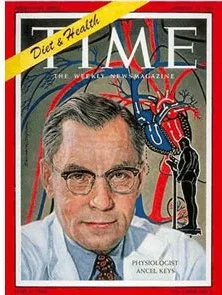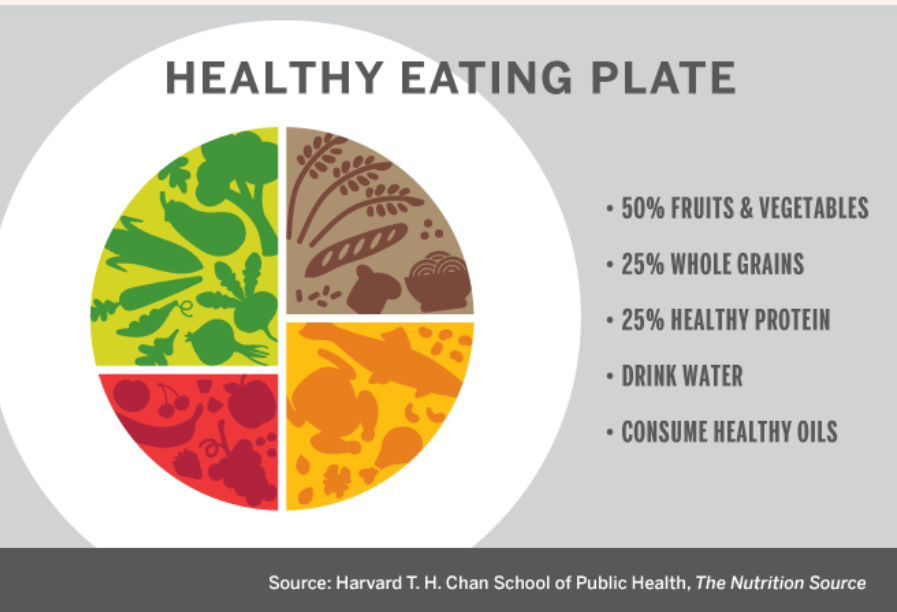At a time when cardiovascular disease is one of the world’s leading causes of death, the link between diet and cardiovascular health has never been more important. Indeed, the choices individuals make in terms of diet play a decisive role in the development of these conditions. What are the prospects for diet and cardiovascular disease? Our knowledge of the links between our diet and our heart is evolving rapidly, and this dynamic is prompting us to reconsider our diet in order to protect the body from these numerous diseases.

Launched in 1960, the Seven Countries Study (SCS)(1) was the very first large-scale study to look at diet and lifestyle as risk factors for cardiovascular disease, across different countries and cultures and over a long period of time.
In this colossal study, mortality rates from 16 populations in seven countries (Greece, Finland, Japan, the former Yugoslavia, Italy, the Netherlands and the USA) revealed that the population of Crete had the lowest rates of cardiovascular disease (observed/expected CVD deaths = 0.06) and cancer among all 16 cohorts. This low prevalence of cardiovascular disease was attributed to the lifestyle and, in particular, the dietary habits of the Cretans, leading to the first description of the famous “Mediterranean diet”.
Since then, an impressive body of experimental and epidemiological evidence has revealed the beneficial effects of a healthy diet on the development of coronary heart disease.
To some extent, when it comes to healthy aging, we become what we eat. According to the Centers for Disease Control and Prevention (CDC), one in four deaths is due to heart disease, a major cause of mortality worldwide.
Among the main risk factors are obesity, high cholesterol, high blood pressure and poor diet, with the first three often linked to the last. The rise in obesity has hit the United States hard and is now spreading to the rest of the world. More than a third of American adults and a fifth of children and adolescents aged 2 to 19 are obese. (1)
A 2012 Harvard study (2) showed that red meat consumption increased mortality from cardiovascular disease and cancer, and that substitution with healthier proteins reduced mortality.
Today, half of all cardiovascular diseases are linked to diet (Meier, 2019). Eating habits may be one of the factors, but also and above all the lifestyle of individuals (alcohol consumption, smoking, sedentary lifestyle…). In concrete terms, a poor diet means excessive consumption of saturated fats, free sugars and salt, as well as a low intake of vegetables, fruit and wholegrain cereals.


To raise awareness of everyday ways to eat better, researchers at Harvard Chan School have created the “Healthy Plate” (3). It suggests eating more fruits and vegetables, whole grains, fish, lean poultry and olive oil, and calls for limiting refined grains, trans fats, red meat, sugary drinks and processed foods. It also recommends staying active.
All recent studies have revealed that up to 80% of cardiovascular conditions could be prevented by simple changes in lifestyle and diet. By combining these adjustments with regular physical activity, we can not only reduce the risk of cardiovascular disease, but also slow down the aging process of our hearts.
So what are these good eating habits to adopt?
- First of all, nutrient-rich foods are essential for cardiovascular health. Fruits, vegetables, whole grains, legumes, nuts and seeds provide a range of vitamins, minerals, antioxidants and fiber that help maintain heart health.
- To replace the saturated and trans fats found in processed foods, opt instead for sources of healthy fats, such as the mono- and polyunsaturated fatty acids found in avocados, nuts, oily fish and vegetable oils.
- Too much salt can increase blood pressure, while too much sugar can contribute to obesity and diabetes, two major risk factors for cardiovascular disease.
- And let’s not forget the importance of hydration. Water is essential to the proper functioning of the circulatory system.
Recent studies have shown that a healthy diet can also stimulate the brain and slow cellular aging.
In France, a number of organizations such as the Fédération Française de Cardiologie, Agir pour le Cœur des Femmes, the Assurance Maladie and the Fondation de Recherche Cardio-Vasculaire are putting forward advice along these lines and seeking to raise public awareness.
Sources :
- https://www.sevencountriesstudy.com/
- https://pubmed.ncbi.nlm.nih.gov/22412075/
- https://news.harvard.edu/gazette/story/2017/05/much-of-life-is-beyond-our-control-but-dining-smartly-can-help-us-live-healthier-longer/
- https://www.aprifel.com/fr/article-revue-equation-nutrition/europe-levolution-des-habitudes-alimentaires-augmente-les-risques-de-maladies-cardiovasculaires/
